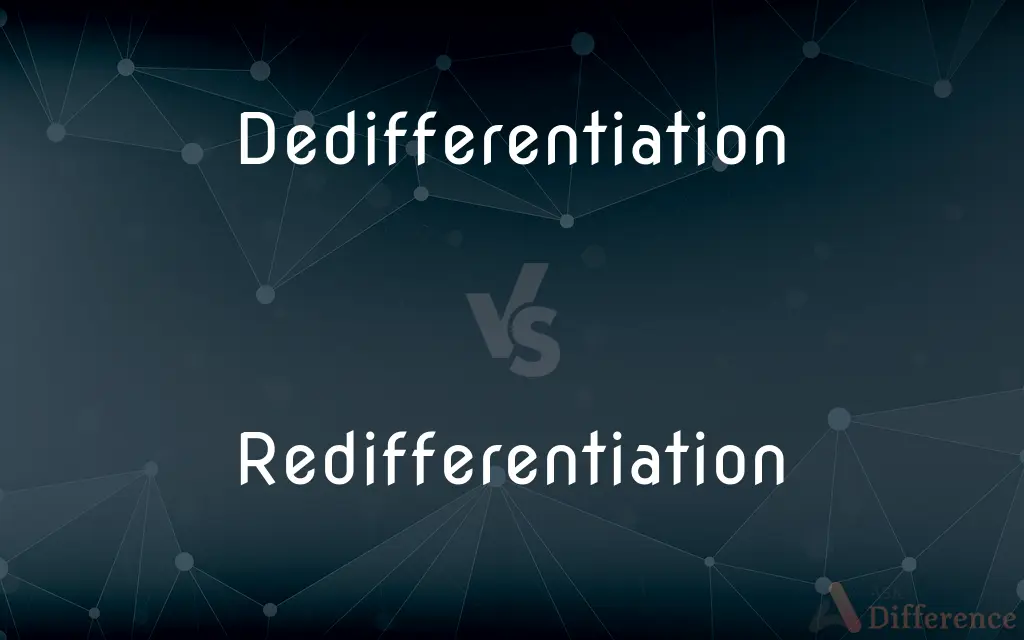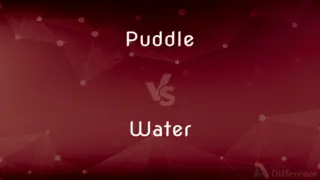Dedifferentiation vs. Redifferentiation — What's the Difference?

Difference Between Dedifferentiation and Redifferentiation
ADVERTISEMENT
Compare with Definitions
Dedifferentiation
Dedifferentiation (pronounced dē-ˌdi-fə-ˌren-chē-ˈā-shən) is a transient process by which cells become less specialized and return to an earlier cell state within the same lineage. This suggests an increase in a cell potency, meaning that after dedifferentiation, cells may possess an ability to redifferentiate into more cell types than it did before.
Redifferentiation
A process by which a group of once differentiated cells return to their original specialized form.
Dedifferentiation
Reversion of a specialized cell or tissue to an unspecialized form. Dedifferentiation may occur before the regeneration of appendages in plants and certain animals and in the development of some cancers.
Redifferentiation
A second or subsequent differentiation after a dedifferentiation
Dedifferentiation
The loss or reversal of differentiation.
ADVERTISEMENT
Dedifferentiation
(biology) The biological process whereby cells revert from a specialized function to a simpler or less specialized form.
Dedifferentiation
The loss of specialization in form or function
Share Your Discovery

Previous Comparison
Puddle vs. Water
Next Comparison
Citation vs. Footnote













































